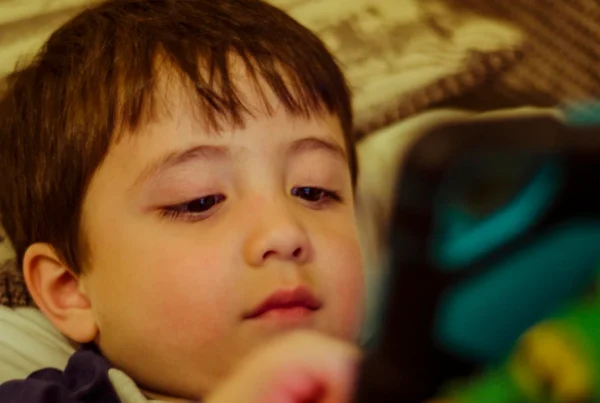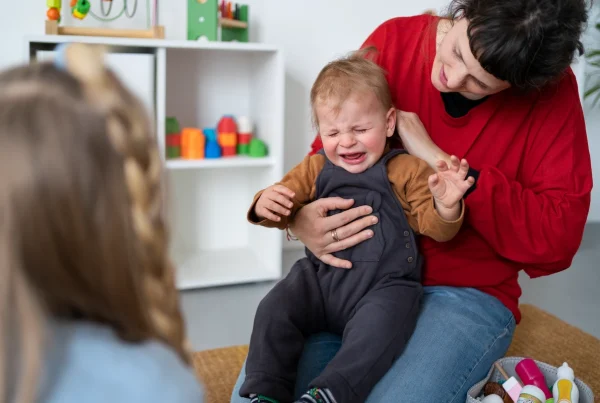At age five, our children’s little minds are like sponges, absorbing everything around them. But what if we could turn that natural curiosity into a superpower for critical thinking? In a world where information is abundant and rapidly evolving, encouraging critical thinking from an early age has never been more crucial.
As we navigate the 21st century, the demand for individuals capable of thinking analytically, making informed decisions, and solving complex problems continues to rise. However, there may be a growing concern about the current generation’s lack of emphasis on critical thinking. The constant influx of data from various sources seems to overshadow their ability to question, analyze, and evaluate information.
In this article, we will explore the significance of nurturing critical thinking skills and provide simple and enjoyable activities you can incorporate into your daily routines to cultivate this essential skill in your children.
Understanding the Critical Thinking Gap
In an era dominated by technology and information overload, it’s easy for critical thinking to take a back seat. As students rely more on quick internet searches and readily available answers, the depth of their analytical thinking tends to suffer.
While imparting valuable knowledge, the traditional education system often falls short in emphasizing the importance of questioning, reasoning, and problem-solving. This critical thinking gap poses a challenge as students transition into an increasingly complex and dynamic world that demands adaptability and innovative thinking.
Therefore, critical thinking activities for kids are needed so that they can grow well. When children’s critical thinking is cultivated, they will no longer be confused in making daily decisions when they grow up.
The Crucial Role of Critical Thinking in the 21st Century
Critical thinking is not just an academic skill; it’s a life skill that transcends the boundaries of classrooms and textbooks. In a rapidly changing global landscape, where challenges are diverse, and solutions are multifaceted, individuals armed with strong critical thinking abilities are better equipped to navigate the complexities of the modern world.
That’s why it’s essential to recognize the urgency of addressing this gap and instill critical thinking skills early on to prepare students for a future where adaptability, creativity, and problem-solving are paramount.
For parents, investing in our children’s critical thinking abilities can help to ensure that they are not only academically adept but also equipped to navigate an information-rich world, make sound choices, and contribute positively to society. In essence, instilling these skills early on allows parents to witness their children develop into individuals capable of doing the right thing, thus contributing to a more informed and responsible future generation.
 Simple Steps for Parents to Foster Critical Thinking at Home
Simple Steps for Parents to Foster Critical Thinking at Home
Now, the question arises: How can parents play an active role in cultivating critical thinking skills in their children? The answer lies in integrating simple yet effective activities into daily routines. These activities not only engage young minds but also lay the foundation for essential cognitive skills. Here are five fun and easy critical thinking activities for 5-year-olds that parents can seamlessly incorporate into their daily interactions:
1. Question Time to Foster Curiosity
Encourage your children to ask questions about the world around them. Whether it’s about why the sky is blue or how plants grow, fostering a sense of curiosity and inquiry is fundamental to developing critical thinking.
This approach cultivates a sense of wonder and an active engagement with learning. Moreover, it contributes to the development of critical thinking skills as children learn to analyze information, make connections between different phenomena, and comprehend the cause-and-effect relationships inherent in the world.
2. Storytelling Adventures to Foster Creativity and Inference
Engage in imaginative storytelling sessions where your child can contribute to the plot. These activities will enhance their creativity and encourage them to think about cause and effect, sequencing, and problem-solving within a narrative context. Moreover, the collaborative nature of these sessions enhances social and emotional development as children learn to express their ideas, listen to others, and collectively build a coherent narrative.
Read more: Fun and Practical Tips for Parents to Nurture Children’s Imagination
3. Puzzle Play for Problem-solving and Analysis
Introduce age-appropriate puzzles that challenge your child’s spatial awareness and problem-solving abilities. Puzzles are a fantastic way to promote logical thinking and patience as children learn to manipulate pieces to achieve a specific outcome.
Additionally, the process of manipulating puzzle pieces fosters patience as children work towards achieving a defined solution. Overall, puzzle play becomes an enjoyable and educational tool, cultivating essential cognitive abilities in a playful context.
4. Nature Exploration for Interpretation and Explanation
Take nature walks and explore the outdoors. Ask your child to observe and describe what they see, fostering observational skills and the ability to draw conclusions based on evidence—an essential aspect of critical thinking.
Also, remember what Psalm 104:24 says: “How many are your works, Lord! In wisdom, you made them all, the earth full of your creatures.” By exploring nature, you could teach and help your child to understand the greatness of God that is reflected in His creation.
5. Building Blocks of Logic for Analysis and Problem-solving
Provide building blocks or construction toys that allow your child to experiment with different structures. This activity enhances fine motor skills and encourages strategic thinking and planning as they figure out how to create a stable structure.
Read more: The Importance of Growth Mindset for Learning
In conclusion, critical thinking is not an elusive trait but a skill that can be nurtured and developed with the right guidance. By recognizing the importance of critical thinking in the 21st century and taking proactive steps to bridge the gap, parents can empower their children to become future thinkers and problem solvers.
SPH International School is committed to supporting parents in this journey, emphasizing that the cultivation of critical thinking skills is a collaborative effort that begins at home. Through these five fun and easy activities, parents can sow the seeds of curiosity and analytical thinking, ensuring that their children are well-equipped to face the challenges and opportunities of the ever-evolving world.
In addition, with an emphasis on the inquiry-led transdisciplinary framework, which started as early as in play-based learning environments through the implementation of Units of Inquiry (UOI), SPH students are also able to practice critical thinking as early as in Kindergarten through observations, simple projects, and other hands-on activities.
Curious to see how we bring critical thinking to life in our classrooms? Explore the enriching educational environment and learning program here at SPH International School, where we foster a culture of curiosity, creativity, and critical thinking. If you’re looking for a nurturing and innovative preschool in Jakarta, visit our website to discover more about our innovative approach to education and how we prepare students for a future of endless possibilities.









